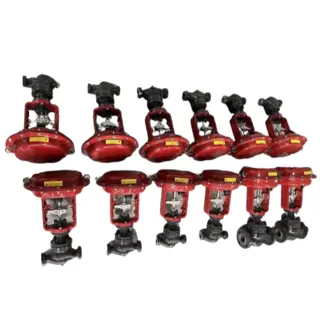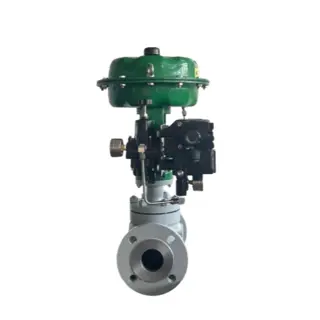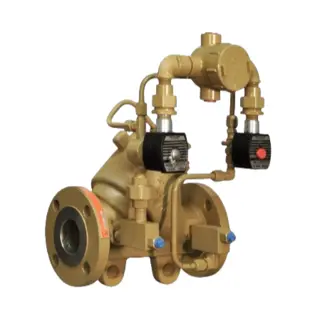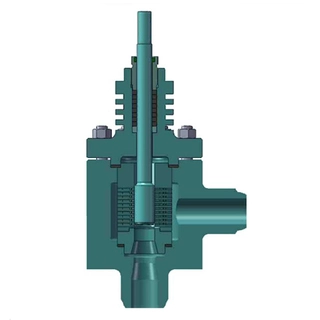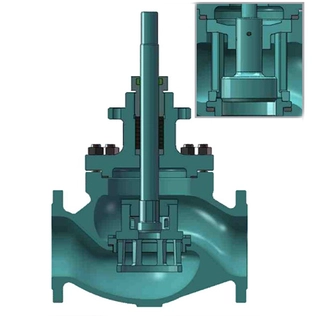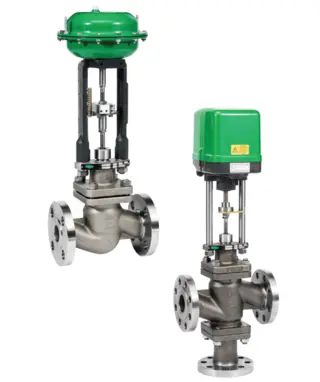Differential Pressure Bypass Control Valve, DN50-DN800
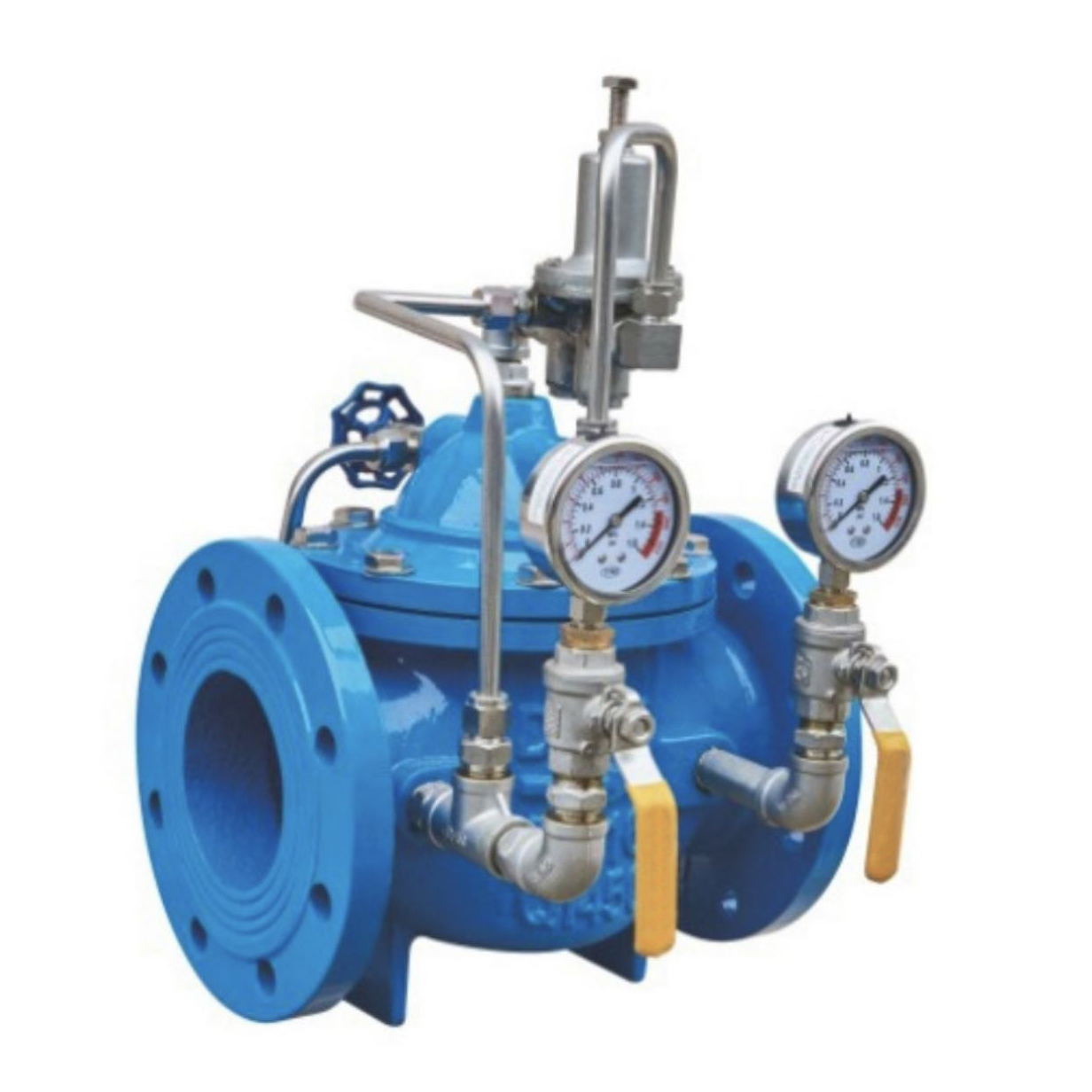
Key Specifications / Features
Hits: 4
Introducing our Differential Pressure Bypass Valve, designed for air conditioning systems. Available in sizes DN50-DN800 (2 Inch - 32 Inch) and pressure ratings PN10, PN16, PN25, with flanged ends for easy installation. This valve effectively regulates differential pressure between supply and feedback water, ensuring optimal system performance. By maintaining a fixed value, it enhances system efficiency, reduces noise, and protects equipment from excessive pressure differentials. Ideal for improving system utilization and ensuring long-term reliability in air conditioning applications.
Request a quote
Tags
Detail Information
SPECIFICATIONS
Product Name: Differential Pressure Bypass Control Valve
Features: Employed in Air Conditioning Systems
Body Material: Ductile Cast Iron, Cast Steel, Stainless Steel
Size: DN50-DN800, 2 Inch - 32 Inch
Pressure Rating: PN10, PN16, PN25
Connection: Flanged Ends
Installation of the Differential Pressure Bypass Valve:
1. Handle the differential pressure bypass valve with care, lifting it using soft rope to prevent damage to the valve and piping.
2. Before installation, ensure piping correctness, reliable connections, lack of transportation damage, and completeness of parts, as per the manual.
3. Pre-installation, clear pipeline debris, verify flange alignment, nominal diameter, and maintain pipeline smoothness.
4. Install two gate valves before and after the differential pressure balancing valve for detection and maintenance ease.
5. Connect the differential pressure pilot valve directly to the supply and feedback pipelines for accurate response. Optionally, install a ball valve for convenience.
Differential Pressure Bypass Valve User Guide:
Before use, ensure all gate valves, ball valves, and needle valves are fully open.
To adjust the differential pressure pilot valve:
1. Observe the pressure between supply/return.
2. Unscrew the top cap on the pilot valve and use a wrench to rotate the top screw.
3. Rotating clockwise increases differential pressure; counterclockwise decreases it.
4. Adjust as needed, then screw the top cap and allow the system to run to stabilize pressure.
Needle valve adjustment:
1. The needle valve controls the main valve's speed.
2. Clockwise slows; counterclockwise speeds.
3. Usually preset, adjustment may not be necessary after delivery.
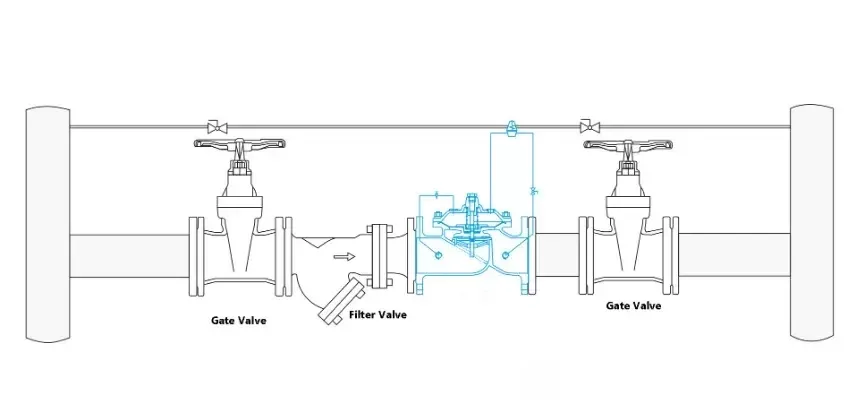
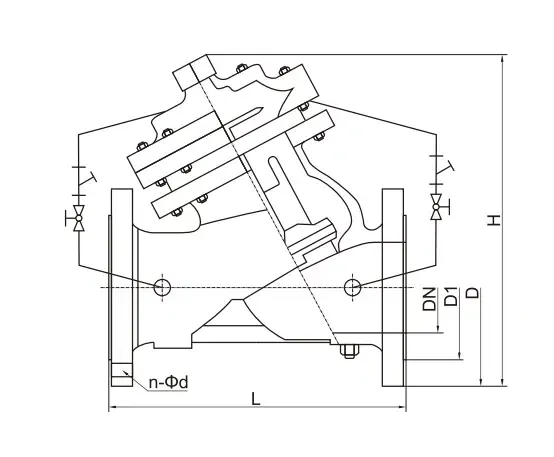
Product Name: Differential Pressure Bypass Control Valve
Features: Employed in Air Conditioning Systems
Body Material: Ductile Cast Iron, Cast Steel, Stainless Steel
Size: DN50-DN800, 2 Inch - 32 Inch
Pressure Rating: PN10, PN16, PN25
Connection: Flanged Ends
Installation of the Differential Pressure Bypass Valve:
1. Handle the differential pressure bypass valve with care, lifting it using soft rope to prevent damage to the valve and piping.
2. Before installation, ensure piping correctness, reliable connections, lack of transportation damage, and completeness of parts, as per the manual.
3. Pre-installation, clear pipeline debris, verify flange alignment, nominal diameter, and maintain pipeline smoothness.
4. Install two gate valves before and after the differential pressure balancing valve for detection and maintenance ease.
5. Connect the differential pressure pilot valve directly to the supply and feedback pipelines for accurate response. Optionally, install a ball valve for convenience.
Differential Pressure Bypass Valve User Guide:
Before use, ensure all gate valves, ball valves, and needle valves are fully open.
To adjust the differential pressure pilot valve:
1. Observe the pressure between supply/return.
2. Unscrew the top cap on the pilot valve and use a wrench to rotate the top screw.
3. Rotating clockwise increases differential pressure; counterclockwise decreases it.
4. Adjust as needed, then screw the top cap and allow the system to run to stabilize pressure.
Needle valve adjustment:
1. The needle valve controls the main valve's speed.
2. Clockwise slows; counterclockwise speeds.
3. Usually preset, adjustment may not be necessary after delivery.

Installation of the Differential Pressure Bypass Valve

Differential Pressure Bypass Control Dimension

Differential Pressure Bypass Control Valves

Differential Pressure Bypass Control Valves
Comment Form

